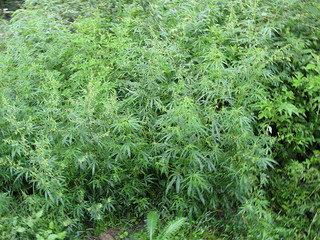“The social costs of the marijuana laws are vast.”
The New York Times’ editorial board agrees with the majority of Americans that marijuana prohibition has got to end. In an editorial on July 26 titled “Repeal Prohibition, Again” the board outlined the many reasons to legalize the herb, drawing comparisons with the nation’s 13 years of failed alcohol prohibition in the 1920s and ’30s. Following a “great deal of discussion … inspired by a rapidly growing movement among the states to reform marijuana laws,” the board came to the conclusion that the federal government should repeal its 40-year ban on marijuana.
Marijuana has been criminalized as a “most dangerous” Schedule I drug for too long and the toll has been great. It is by far the most popular illegal substance: even President Obama acknowledges it’s less dangerous than alcohol, yet policing policies arrest people at alarming rates for mere possession of the plant, targeting low-income minorities. The Times editorial board noted that racist, mass-scale marijuana arrests were a factor in its decision to take a stand:
“The social costs of the marijuana laws are vast. There were 658,000 arrests for marijuana possession in 2012, according to F.B.I. figures, compared with 256,000 for cocaine, heroin and their derivatives. Even worse, the result is racist, falling disproportionately on young black men, ruining their lives and creating new generations of career criminals.”
As a result of those racist policies, our prisons are overflowing with nonviolent drug law violators. American tax dollars, which pay to house, feed and clothe these prisoners, are filling the pockets of private prison tycoons who profit from keeping our prisons and jails filled to capacity.
Additionally, while the herb’s healing effects are recognized in the 23 states that have legalized medical marijuana, the federal government denies it has any medicinal qualities and blocks scientific research into its potential benefits. As the Times editorial points out, “on every level — health effects, the impact on society and law-and-order issues — the balance falls squarely on the side of national legalization. That will put decisions on whether to allow recreational or medicinal production and use where it belongs — at the state level.”
While the board did not take a side on the medical marijuana debate, other than deeming it a states’ issue, it did cite “overwhelming” evidence that the risk of addiction and dependence from pot is low, “especially compared with alcohol and tobacco. Moderate use of marijuana does not appear to pose a risk for otherwise healthy adults. Claims that marijuana is a gateway to more dangerous drugs are as fanciful as the ‘Reefer Madness’ images of murder, rape and suicide.”
The Times’ editorial is a historic step in the right direction, and a great boon to drug policy reformers who have worked for decades to highlight the many ways marijuana prohibition is illogical, harmful and unnecessary.
Ethan Nadelmann, executive director of the Drug Policy Alliance commented on the groundbreaking editorial in a press release.
“This is of historic consequence — far bigger than most people assume. Some people in the country may perceive the Times editorial page as a liberal organ, but they should know that on this issue they’ve been cautious to a fault, even conservative. So for them to write what they did, at this juncture, demonstrated intellectual and moral clarity as well as courage.”








